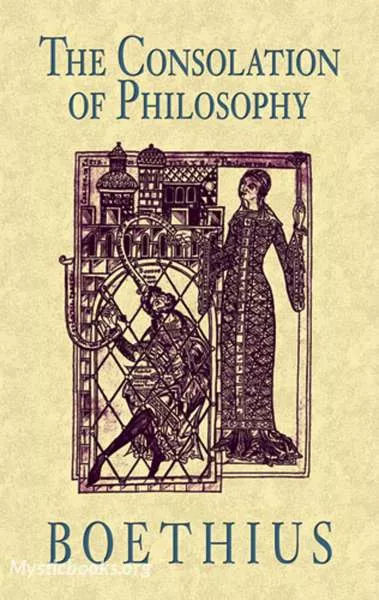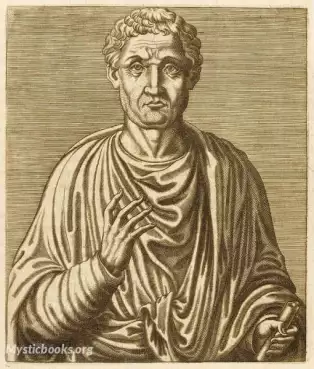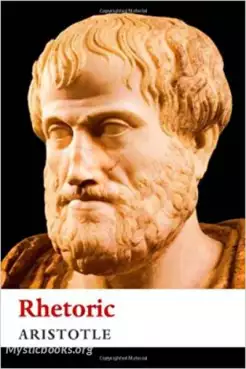
The Consolation of Philosophy
by Anicius Manlius Severinus Boethius
'The Consolation of Philosophy' Summary
Boethius writes the book as a conversation between himself and a female personification of philosophy. Philosophy consoles Boethius by discussing the transitory nature of fame and wealth ("no man can ever truly be secure until he has been forsaken by Fortune"), and the ultimate superiority of things of the mind, which she calls the "one true good". She contends that happiness comes from within, and that virtue is all that one truly has, because it is not imperiled by the vicissitudes of fortune.
Boethius engages with the nature of predestination and free will, the problem of evil, human nature, virtue, and justice. He speaks about the nature of free will and determinism when he asks if God knows and sees all, or does man have free will. On human nature, Boethius says that humans are essentially good and only when they give in to “wickedness” do they “sink to the level of being an animal.” On justice, he says criminals are not to be abused, rather treated with sympathy and respect, using the analogy of doctor and patient to illustrate the ideal relationship between prosecutor and criminal.
Book Details
Language
EnglishOriginal Language
LatinPublished In
524Authors

Anicius Manlius Severinus Boëthius, commonly called Boethius, was a Roman senator, consul, magister officiorum, and philosopher of the early 6th century. He was born about a year after Odoacer de...
Books by Anicius Manlius Severinus BoethiusDownload eBooks
Listen/Download Audiobook
Related books

The Will and the Way Stories by Jessie Benton Fremont
Simply put, this is a book of 9 short vignettes each of which describes a different scenario which demonstrates the age old adage: 'where there's a wi...

The Fifth String by John Philip Sousa
"The Fifth String" by John Philip Sousa is a captivating novel that takes you on a musical journey like no other. Imagine a world where the power of m...

Supreme Personality by Delmer Eugene Croft
Life is self-realization. Every birth is divine. We are born anew every morning. My wish is that you may catch the gleam, be freed from limitations an...

The Freedom of Life by Annie Payson Call
"The Freedom of Life" is a book written by Annie Payson Call, an American author and teacher of the Alexander Technique, a method for improving postur...

The Prince by Niccolò Machiavelli
Machiavelli has created a ruthless guide on how to rule the country in his volume "The Prince". The book is dedicated to Lorenzo De Medici, the ruler...

The Logic of Hegel by Georg Wilhelm Friedrich Hegel
In "The Logic of Hegel" by the renowned philosopher Georg Wilhelm Friedrich Hegel, embark on a profound intellectual journey through the intricate lab...

From Passion to Peace by James Allen
The first three parts of this book, Passion, Aspiration, and Temptation, represent the common human life, with its passion, pathos, and tragedy. The l...

Dynamic Thought; Or, The Law of Vibrant Energy by William Walker Atkinson, Theron Q. Dumont
Harness the power of your thoughts to create the life you desire. Dynamic Thought; Or, The Law of Vibrant Energy is a classic guide to the power of t...

Dialogues Concerning Natural Religion by David Hume
Dialogues Concerning Natural Religion is a philosophical work by the Scottish philosopher David Hume, first published in 1779. Through dialogue, three...
Reviews for The Consolation of Philosophy
No reviews posted or approved, yet...
